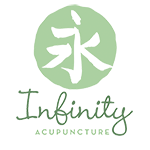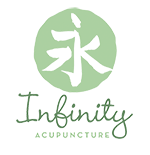The 3rd Dimension of Health: Social Health, It Can Save Your Life!
As part of our exploration of the 8 Dimensions of Health, today we are going to explore Social Health, which can be defined as our capacity to create and maintain meaningful and fulfilling relationships with others. In what ways are we willing to expand our capacity to do so?
We are not islands. We need each other! Humans are innately social beings who need connection and community to truly thrive. We are meant to collaborate with others, to connect, to care for, to be cared for, to celebrate, to mourn and to bounce ideas off of each other. It is through our connections that community is built.
Through the last 2 ½ years, due to the pandemic, many of our social connections have been altered, lost, fragmented or made stronger. We found out who was most important to us and who was not. Maybe you realized certain people were not necessarily a good fit for you after all. Maybe you created newer, stronger relationships. Maybe you felt very isolated and alone and have since realized the importance of social connection. Whatever you experienced during the shutdowns, as cases begin to fall and the world reopens once again, now is the time to explore what type of social connections are most important to you and how you want to create space in your life for them.
There is the phrase, “where intention goes, energy flows”. Begin to ponder the connections and relationships in your life that you wish to foster, nourish and grow. By shining the light of your awareness on these specific people in your world, notice how you feel in your body. This is a great time to journal or even chat with a close friend about what makes these relationships so valuable to you. What are 3 specific ways that you can foster the 3 most important relationships in your life? Get specific and write it down so that you can come back to it later.
Turn up the volume of your own social health by actively listening when people are speaking to you, find a new network group or social outlet, plan a community dinner, ask for help when you need it or explore a specific need within your community and brainstorm solutions. It is through our connections that our communities and our families grow stronger.
We are blessed at Relax! Massage Therapy and Skin Care to have one of the most phenomenal teams on the planet that is overflowing with talent, passion and a collective desire to create positive change in the world. Each team member is wildly inspiring in their own way. Regularly we hear that our team creates a sense of connection and community that can be sensed and felt by our clients as well as over social media. We are grateful to be a part of the Wilmington community and to offer a place to return for rest, recovery and deep relaxation!
Our team at Relax encourages you to get curious around how you can create more space in your life for social health and connection. Return to the 3 ways that you wish to foster 3 important relationships in your life, and ponder if this perhaps is a good place to start. Just by turning your awareness towards social health, opportunities for more connection and collaboration will become available. We look forward to helping you feel connected.
If you’re interested in the research, it shows that social connections are good for your overall health and longevity. From https://www.ncbi.nlm.nih.gov/pmc/articles/PMC3150158/ come these interesting facts. “Many types of scientific evidence show that involvement in social relationships benefits health. The most striking evidence comes from prospective studies of mortality across industrialized nations. These studies consistently show that individuals with the lowest level of involvement in social relationships are more likely to die than those with greater involvement (House, Landis, and Umberson 1988). For example, Berkman and Syme (1979) showed that the risk of death among men and women with the fewest social ties was more than twice as high as the risk for adults with the most social ties. Moreover, this finding held even when socioeconomic status, health behaviors, and other variables that might influence mortality, were taken into account. Social ties also reduce mortality risk among adults with documented medical conditions. For instance, Brummett and colleagues (2001) found that, among adults with coronary artery disease, the socially isolated had a risk of subsequent cardiac death 2.4 times greater than their more socially connected peers. “


